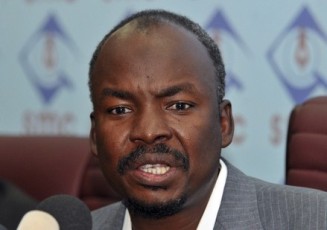South Kordofan governor comes under renewed pressure over performance
February 28, 2012 (KHARTOUM) – Around 2,000 residents of the Babanousa area in South Kordofan state staged a demonstration in front of the locality’s building to protest the deterioration of basic services.

The demonstrators expressed fury over what they described as Governor Ahmed Haroun ignoring the demands they previously submitted regarding delivery of electricity, water, health and education services to Babanousa as well as soaring cost of living.
One of the residents speaking to Sudan Tribune by phone from Babanousa said that they intend re-congregate next Thursday unless their demands are met, which were outlined in several memos previously handed to Haroun.
The state is the scene of military operations between Sudan Armed Forces (SAF) and rebels from Sudan People Liberation Movement North (SPLM-N) led by Haroun’s former deputy Abdel-Aziz al-Hilu.
Over the weekend, the SPLM-N acting as part of the alliance named Sudan Revolutionary Front (SRF), claimed to have taken control of Jau town and Toroge.
SRF includes a number of Darfur rebel groups namely Justice and Equality Movement (JEM) as well as Sudan Liberation Movement of Abdel-Wahid Al-Nur and Minni Minnawi (SLM-MM & SLM-AW).
Sudan accused the newly established state of South Sudan of standing behind the attack and suggested that all options are open to respond, including military ones.
Fighting has been raging for months between the Sudanese army and the rebels who say they want to topple the Khartoum government, in the states of South Kordofan and Blue Nile. The causes of the fighting are hard to ascertain with each side blaming the other.
In Khartoum, Haroun addressed a parliamentary subcommittee on defence and security and said that the situation there is stabilising as a result of army intervention over the last two days. He further said that SAF was in the process of cleansing the state of remnants of South Sudanese soldiers.
“Any rebel group in the world is supported by a foreign agenda,” the governor said.
Haroun further pointed out that several developmental projects are being implemented despite the “difficult conditions” the state is going through.
Kamal Obeid, head of a parliamentary commission which visited South Kordofan recently, said that he sees no need for declaring emergency law in the state. He revealed that his panel will soon meet with ministers of defence, interior and the intelligence chief to discuss the security situation in the state that borders South Sudan.
The ruling National Congress Party (NCP) is under growing pressure from its own members in South Kordofan to remove Haroun from his position.
Last December, leading NCP figures in the restive state submitted a memo to the party’s leadership in Khartoum saying that Haroun exceeded the executive, legal and legislative limits calling him part of the problem. The NCP downplayed the demand saying it is simply a process of exchanging views within the party.
But Abdel-Rasoul al-Nur, a key tribal leader of the Arab Misseriya tribe echoed calls this month to dismiss Haroun and implored upon Khartoum to appoint a military governor.
He blamed Haroun for not consulting South Kordofan tribes to end the ongoing conflict and opting for the military option. Others figures in the state say that he is focused excessively on security aspects of his job and pays no attention to other needs of South Kordofan.
To add insult to injury, SPLM-N managed last month to kidnap 29 Chinese construction workers working in South Kordofan during an attack on SAF convoy.
The workers were later released but the incident embarrassed Haroun and Khartoum as well and demonstrating the volatility of the situation in his state.
Haroun, from the Bargo tribe of North Kordofan, is one of three Sudanese including President Omer Hassan al-Bashir, wanted by the International Criminal Court (ICC) for war crimes and atrocities allegedly committed in Darfur region during the period of 2003-2004.
Bashir refused to surrender himself or any Sudanese citizen to the Hague based court. He also dismissed calls for excluding him from the government.
(ST)
